A Time for Action
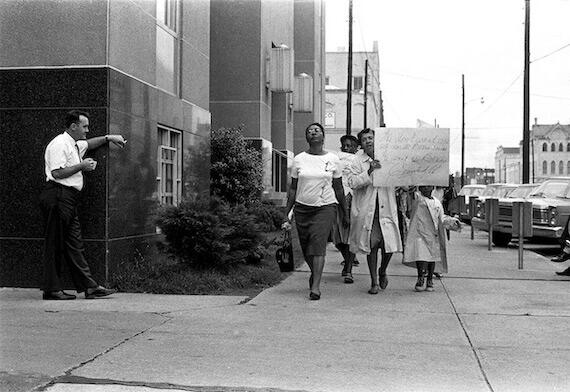
Like many of you, we at World Monuments Fund have been thinking a lot lately about the Black Lives Matter movement, the killing of George Floyd, Breonna Taylor, Ahmaud Arbery, and many others, and the conversations and protests that have followed. The impact has been both incredibly local - in the dialogue we've begun at our organization - and impressively global - in the activities we've all seen not just here in the United States but around the world.
We've also been asking ourselves, where does WMF fit more generally in this conversation? Beyond our ability to communicate and do our part to raise awareness, I believe we do play a role, if one that's harder to see.
Whether by protecting landmarks of the U.S. civil rights movement through our Voices of Alabama project and raising awareness of the Atlantic slave trade's history via our work at Bunce Island in Sierra Leone, or by safeguarding unique sites that reveal and celebrate global diversity such as Port-au-Prince's Gingerbread Neighborhood, our work ultimately promotes the understanding and appreciation of different cultures, experiences and people. In this way, we don't just enrich people's lives; we contribute in small but meaningful ways to making the world a more just and compassionate place.
And, at the same time that each of us is grappling with these difficult, important issues, we find ourselves constantly adjusting to the realities of COVID-19. At WMF, our work gives us a direct view on how the global pandemic is impacting life around the world and how the situation constantly evolves. Today, many of our projects are reopening after months of closure, while elsewhere at sites like Beijing's Forbidden City new restrictions are being put in place to combat recent spikes in cases.
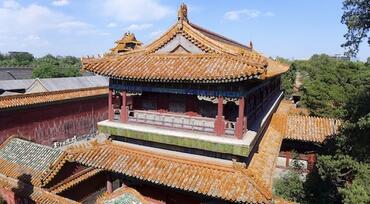
Thanks to the World Monuments Relief Fund, we have been able to support teams and communities around our sites while ensuring the continuity of conservation protocols and their ability to restart physical work as soon as it is safe to do so.
It is encouraging to announce that WMF projects in France, Iraq, and the U.K., among others, have reopened. But we remain cautious, working closely with local authorities as conditions on the ground continue to evolve.
We firmly believe that cultural heritage preservation will play a key role in helping communities recover and help infuse that recovery with purpose.
We dedicate this newsletter to the people worldwide who have devoted so much effort to keeping our work going, particularly in countries such as Peru, Ethiopia, Egypt, India, Mexico, and Japan, where infections are on the rise. We also dedicate this newsletter to change and growth, and invite those of you looking to support the Black Lives Matter movement to visit the official BLM webpage for more information on ways to do so.
I wish you all safety and good health in these uncertain times and thank you always for your support and friendship.
Bénédicte de Montlaur
CEO and President
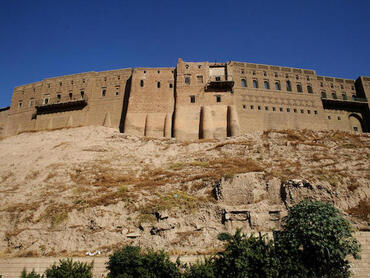
WMF Reopenings Around the World: Caution and Flexibility
Close to home, a good example is our masonry training program, Bridge to Crafts Careers (B2CC), at Woodlawn Cemetery in the Bronx. When New York City asked residents to shelter in place, we transformed the training class that was just kicking off into a series of online courses.
Now, as things begin to open up, the class has returned to the field thanks to a set of social distancing protocols to begin their practical on-site training.
Farther afield, at the Erbil Citadel in Iraq, we are implementing a rotation schedule for artisans designed to ensure their protection while letting work recommence. Although such measures are critically important to allow for appropriate social distancing, they come with a cost. And we are grateful for the financial support that ALIPH (the International Alliance for the Protection of Heritage in Conflict Areas) has provided to the World Monuments Relief Fund for this purpose.
In India, we have spent weeks working to find innovative ways to support a team of 60 people who found themselves suddenly trapped at their project site, Osmania Women's College in Hyderabad, due to a sudden lockdown of the city. As they were initiatlly not permitted to leave, we created new safety protocols that would allow them to remain on site and continue their work without risk of contamination while we continued to negotiate with the local authorities. A few weeks ago, we succeeded in securing permission for them to be reunited with their families, and we arranged for their transportation home.
Cultural Heritage in Times of Crisis
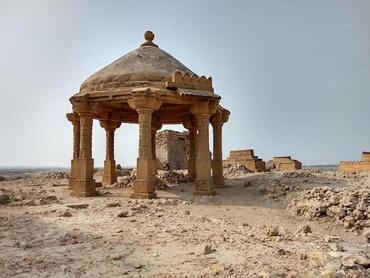
Like cultural organizations everywhere, we found ourselves scrambling to repurpose our annual Spring Spotlight fundraiser from a festive dinner in New York to an online event. While born out of constraint, the online format allowed us to gather an incredible group of experts from around the world to participate in a lively dialogue around the role cultural heritage will play in our post-coronavirus world.
Tristram Hunt, director of the Victoria & Albert Museum, spoke from London on the role that digital resources are playing in cultural life, while the architect Yasmeen Lari joined us from Karachi, Pakistan to reflect on COVID's potential impact on tourism and local community engagement. From here in New York, Columbia University Professor Barry Bergdoll rounded out the panel, desribing how the shape of our cities is very much the product of the successive health crises throughout the ages. If you weren't able to attend live, you can access the complete conversation here.
Thanks to the generosity of many of you, the money we raised - nearly $150,000 - will go to support the Relief Fund.
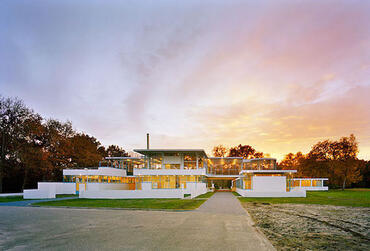
WMF/Knoll Modernism Prize Postponed
In 2008, responding to challenges facing modern heritage, World Monuments Fund joined forces with Knoll, Inc., the modern furniture design company, to create the World Monuments Fund/Knoll Modernism Prize. It was the first prize to acknowledge the specific and growing threats - neglect, deterioration, and demolition - that endanger modern buildings.
The bi-annual event brings international attention to the efforts of architects around the globe who have created exemplary designs ensuring the long-term survival of modern buildings. Previous winners include Agence Christiane Schmuckle-Mollard for its restoration work on the Karl Marx School in Villejuif, France (2018), the Hizuchi Elementary School, a post-war functionalist wood school in Yawatahama, Japan designed by Maatsune Matsumura (2012), and the Zonnestraal Sanatorium, an iconic modern building the Hilversum, the Netherlands (2010), among others.
Due to the COVID-19 pandemic, this year's edition of the World Monuments Fund/Knoll Modernism Prize has been postponed. The Call for Nominations is currently slated to take place in fall 2021. Further details to follow.
Discover past winners of the Knoll Modernism Prize here.
